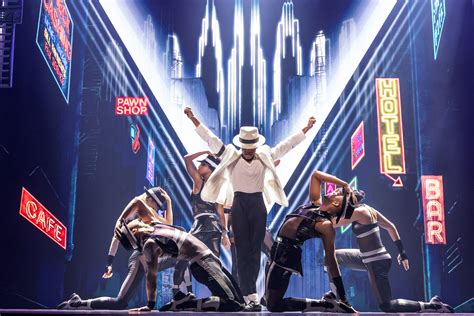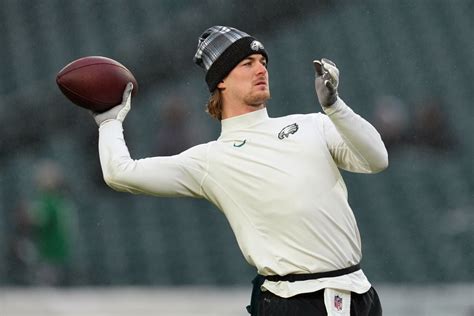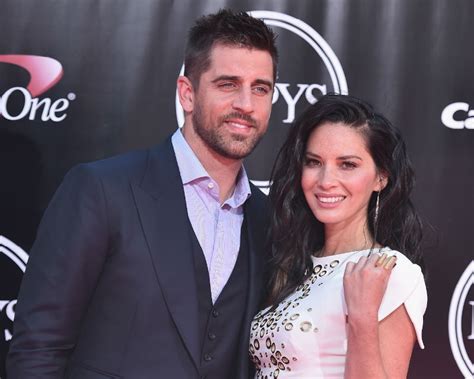
Magic Johnson publicly called for an end to his long-standing feud with Isiah Thomas, stating, “We’re too old for this,” signaling a potential reconciliation between two of basketball’s legendary figures after decades of animosity.
Two Hall of Fame point guards, Magic Johnson and Isiah Thomas, are potentially nearing the end of their decades-long feud. Johnson, in a recent interview, expressed a desire to move past the rivalry, acknowledging their age and the need to reconcile. The feud, which has roots in the late 1980s and early 1990s, has been a significant part of NBA history, impacting their personal and professional relationships. Johnson’s recent comments suggest a willingness to bury the hatchet and foster a more amicable relationship with his former rival.
The rivalry between Magic Johnson and Isiah Thomas was one of the most compelling storylines in the NBA during its golden era. Both were point guards, leaders of their respective teams – the Los Angeles Lakers and the Detroit Pistons – and both were instrumental in shaping the league’s landscape. However, their relationship soured over time, fueled by competitiveness, perceived slights, and off-court incidents.
“We’re too old for this,” Johnson said, reflecting a sentiment of maturity and a desire to leave the past behind. He emphasized the importance of moving forward, suggesting that the time has come to put aside their differences and embrace a more peaceful coexistence.
The origin of the feud can be traced back to various incidents, including the infamous “freeze-out” of Thomas during the 1988 All-Star Game, orchestrated allegedly by Johnson and other players who felt Thomas was arrogant and difficult to deal with. This incident, coupled with intense battles between the Lakers and Pistons in the NBA Finals (1988 and 1989), created a deep rift between the two superstars. The rivalry intensified with personal attacks and veiled accusations, leading to a complete breakdown of their friendship.
Further complicating matters was the Dream Team selection process for the 1992 Barcelona Olympics. Thomas was controversially left off the team, and many believed that Johnson, who was a key figure in assembling the roster, played a significant role in his exclusion. While Johnson has denied these allegations, the perception persisted and further strained their relationship.
Despite the animosity, both Johnson and Thomas have achieved remarkable success in their careers. Johnson led the Lakers to five NBA championships, earning three Finals MVP awards and three regular-season MVP awards. Thomas guided the Pistons to back-to-back championships in 1989 and 1990, cementing his status as one of the greatest point guards of all time.
The personal cost of their feud has been significant. Both players have acknowledged the impact it has had on their lives, affecting their relationships with others and creating a sense of unease between them. Johnson’s recent comments offer a glimmer of hope that the two legends can finally put their differences aside and move forward in a spirit of reconciliation.
The potential reconciliation between Johnson and Thomas would not only be a positive development for them personally but also for the broader basketball community. Their story serves as a reminder of the intensity of competition and the challenges of maintaining relationships in a high-pressure environment. By resolving their differences, they can set an example for others and demonstrate the importance of forgiveness and understanding.
The feud has been a topic of discussion in numerous documentaries, interviews, and articles, highlighting its significance in NBA history. Many fans and analysts have long hoped for a reconciliation, recognizing the immense respect that Johnson and Thomas deserve as pioneers of the game. Johnson’s recent statement could be the first step towards achieving that goal.
It remains to be seen how Thomas will respond to Johnson’s gesture. However, the fact that Johnson has publicly expressed a desire to end the feud is a significant development. It suggests that both players may be ready to move on and embrace a more positive relationship, leaving behind the bitterness and animosity of the past.
The impact of this reconciliation could extend beyond their personal relationship. It could also have a positive influence on the NBA community, promoting a culture of respect and understanding. By showing that even the most intense rivalries can be overcome, Johnson and Thomas can inspire others to resolve their differences and build stronger relationships.
The legacy of Magic Johnson and Isiah Thomas is secure, regardless of whether they reconcile. However, a reconciliation would add a new dimension to their story, demonstrating their maturity, forgiveness, and willingness to move beyond the conflicts of the past. It would be a fitting end to a rivalry that has captivated basketball fans for decades.
Johnson’s willingness to extend an olive branch underscores a broader theme of reconciliation and healing, particularly in a world often divided by conflict and animosity. By publicly stating his desire to end the feud, Johnson is not only addressing his personal relationship with Thomas but also sending a message of hope and understanding to others.
The context of their rivalry also includes the significant cultural and social dynamics of the 1980s and 1990s. The NBA was undergoing a transformation, and the rivalry between the Lakers and Pistons represented a clash of styles and ideologies. The Lakers, with their glamorous image and Hollywood connections, symbolized the glitz and excitement of the era. The Pistons, known as the “Bad Boys,” embodied a more physical and confrontational style of play, reflecting the grittier aspects of urban life.
The personal relationship between Johnson and Thomas was further complicated by their contrasting personalities. Johnson was known for his charismatic and outgoing demeanor, while Thomas was perceived as more reserved and introspective. These differences, combined with the pressures of competition, contributed to the growing rift between them.
Despite their differences, both Johnson and Thomas shared a deep love for the game of basketball and a relentless drive to succeed. They both overcame significant obstacles to reach the pinnacle of their profession and inspired countless others along the way. Their achievements on the court are undeniable, and their contributions to the NBA are immeasurable.
The potential reconciliation between Johnson and Thomas represents a significant moment in NBA history. It is a reminder that even the most intense rivalries can be overcome and that forgiveness is always possible. By moving forward in a spirit of reconciliation, Johnson and Thomas can set an example for others and demonstrate the power of understanding and compassion.
The impact of their reconciliation would also be felt by the younger generation of basketball players. Many current NBA stars grew up idolizing Johnson and Thomas and were inspired by their on-court battles. By resolving their differences, Johnson and Thomas can show these young players the importance of respect and sportsmanship, even in the heat of competition.
The story of Magic Johnson and Isiah Thomas is a testament to the complexities of human relationships and the challenges of navigating the pressures of professional sports. Their rivalry has been a source of fascination for decades, and their potential reconciliation offers a glimmer of hope for a more positive future.
Johnson’s decision to publicly address the feud reflects a desire to take responsibility for his role in the conflict and to move towards a more amicable relationship with Thomas. It is a sign of maturity and a willingness to let go of the past.
The potential reconciliation between Johnson and Thomas would not only be a positive development for them personally but also for the broader community. It would serve as a reminder that even the most deeply entrenched conflicts can be resolved and that forgiveness is always possible. By moving forward in a spirit of reconciliation, Johnson and Thomas can inspire others to do the same and create a more positive and harmonious world.
The media attention surrounding their feud has been intense over the years, with countless articles, documentaries, and interviews exploring the various aspects of their relationship. The potential reconciliation between Johnson and Thomas is likely to generate even more media coverage, as fans and analysts eagerly await the next chapter in their story.
The impact of their reconciliation would also be felt by the families and friends of Johnson and Thomas. Their feud has undoubtedly affected those closest to them, and a reconciliation would bring a sense of closure and healing to all involved.
Johnson’s recent comments suggest that he is ready to move on from the past and embrace a more positive future. It remains to be seen how Thomas will respond, but the fact that Johnson has publicly expressed a desire to end the feud is a significant step in the right direction.
The potential reconciliation between Johnson and Thomas is a reminder that even the most intense rivalries can be overcome and that forgiveness is always possible. By moving forward in a spirit of reconciliation, Johnson and Thomas can set an example for others and demonstrate the power of understanding and compassion. It’s a step towards healing and serves as an inspiration for others to do the same.
Extended Analysis and Background Information:
The feud between Magic Johnson and Isiah Thomas is more than just a simple sports rivalry; it’s a complex tapestry woven with threads of competition, jealousy, miscommunication, and the intense pressures of professional sports. Understanding the nuances of their relationship requires delving into the historical context of the NBA in the 1980s and 1990s, as well as examining the personalities and individual journeys of these two iconic figures.
The 1980s NBA was dominated by two teams: the Los Angeles Lakers and the Boston Celtics. Magic Johnson and Larry Bird, the respective leaders of these teams, forged a rivalry that revitalized the league and captivated audiences worldwide. However, beneath the surface of this iconic rivalry, other rivalries were brewing, including the one between Magic Johnson and Isiah Thomas.
Isiah Thomas, a Chicago native, was drafted by the Detroit Pistons in 1981 and quickly transformed the team into a contender. Known for his dazzling ball-handling skills, scoring ability, and fierce competitiveness, Thomas became the heart and soul of the Pistons. Magic Johnson, drafted by the Lakers in 1979, brought a similar level of excitement and dynamism to his team. His infectious enthusiasm, unparalleled passing ability, and larger-than-life personality made him an instant superstar.
Initially, Johnson and Thomas were close friends. They shared a bond forged by their shared experiences as young black men navigating the predominantly white world of professional basketball. They supported each other, celebrated each other’s successes, and even vacationed together. However, as their careers progressed and their teams became rivals, their relationship began to unravel.
The 1988 NBA Finals, in which the Lakers defeated the Pistons in a hard-fought seven-game series, marked a turning point in their relationship. The intensity of the competition, coupled with perceived slights and miscommunications, began to erode the bond that had once existed between them. The “freeze-out” incident at the 1988 All-Star Game, where Thomas was allegedly ostracized by Johnson and other players, further strained their relationship.
The Pistons, led by Thomas, exacted revenge on the Lakers in the 1989 NBA Finals, sweeping them in four games. The series was marked by physical play and intense animosity, further fueling the rivalry between Johnson and Thomas. The “Bad Boys” Pistons, known for their aggressive defense and confrontational style of play, represented a stark contrast to the Lakers’ glamorous image and Hollywood connections.
In the years that followed, the rivalry between Johnson and Thomas continued to simmer. They traded barbs through the media, and their relationship became increasingly strained. The Dream Team selection process for the 1992 Barcelona Olympics further exacerbated the situation. Thomas was controversially left off the team, and many believed that Johnson played a role in his exclusion.
Johnson’s HIV diagnosis in 1991 shocked the world and brought a new perspective to his life. He became an advocate for HIV/AIDS awareness and used his platform to educate and inspire others. Thomas, despite their strained relationship, publicly supported Johnson and expressed his sympathy.
Over the years, both Johnson and Thomas have achieved remarkable success in their post-playing careers. Johnson has become a successful businessman and entrepreneur, while Thomas has worked as a coach, executive, and broadcaster. However, the shadow of their feud has always lingered, casting a pall over their relationship and preventing them from fully reconciling.
The complexities of their relationship have been explored in numerous documentaries and articles, highlighting the personal and professional costs of their feud. Many fans and analysts have long hoped for a reconciliation, recognizing the immense respect that Johnson and Thomas deserve as pioneers of the game.
Johnson’s recent statement, expressing a desire to end the feud, represents a significant moment in their story. It suggests that he is ready to move on from the past and embrace a more positive relationship with Thomas. Whether Thomas will reciprocate remains to be seen, but Johnson’s gesture is a step in the right direction.
A reconciliation between Johnson and Thomas would not only be a positive development for them personally but also for the broader basketball community. It would serve as a reminder that even the most intense rivalries can be overcome and that forgiveness is always possible. By moving forward in a spirit of reconciliation, Johnson and Thomas can set an example for others and demonstrate the power of understanding and compassion.
The potential reconciliation also speaks to the broader themes of aging, maturity, and the importance of valuing relationships. As they grow older, Johnson and Thomas may be realizing that the animosity of the past is no longer worth holding onto. They may be recognizing the importance of forgiveness and the value of reconciliation.
Ultimately, the decision to reconcile rests with Johnson and Thomas. However, their story serves as a powerful reminder of the complexities of human relationships and the challenges of navigating the pressures of professional sports. Whether they choose to reconcile or not, their legacy as two of the greatest basketball players of all time is secure.
Frequently Asked Questions (FAQ)
Q1: What sparked the feud between Magic Johnson and Isiah Thomas?
A1: The feud between Magic Johnson and Isiah Thomas stemmed from a combination of factors, including intense on-court competition between the Los Angeles Lakers and the Detroit Pistons in the late 1980s and early 1990s, perceived slights and miscommunications, and personal differences. Specific incidents, such as the alleged “freeze-out” of Thomas during the 1988 All-Star Game and the heated battles in the 1988 and 1989 NBA Finals, contributed to the growing animosity between them. The Dream Team selection in 1992, where Thomas was left off the team, further exacerbated the situation.
Q2: What was the “freeze-out” incident at the 1988 All-Star Game?
A2: The “freeze-out” incident refers to allegations that Magic Johnson and other players conspired to exclude Isiah Thomas from receiving passes and scoring opportunities during the 1988 All-Star Game. The motivation behind this alleged action was reportedly a feeling among some players that Thomas was arrogant and difficult to deal with. This incident significantly strained the relationship between Johnson and Thomas and is considered a key event in the development of their feud.
Q3: Did Magic Johnson play a role in Isiah Thomas being left off the 1992 Dream Team?
A3: It has long been speculated that Magic Johnson influenced the decision to exclude Isiah Thomas from the 1992 Dream Team. While Johnson has denied these allegations, the perception persisted that he played a role in Thomas’s exclusion. The Dream Team was a highly prestigious opportunity, and Thomas’s absence was a major point of contention, further fueling the rivalry between the two.
Q4: What prompted Magic Johnson to call for an end to the feud now?
A4: Magic Johnson’s recent comments about ending the feud seem to stem from a sense of maturity and a desire to move on from the past. He stated, “We’re too old for this,” suggesting that he recognizes the importance of reconciliation and letting go of past grievances. The passage of time, coupled with a desire to embrace a more positive relationship, may have prompted Johnson to reach out and express his willingness to end the feud.
Q5: What impact would a reconciliation between Magic Johnson and Isiah Thomas have?
A5: A reconciliation between Magic Johnson and Isiah Thomas would have several positive impacts. Firstly, it would bring closure and healing to both individuals, allowing them to move forward in their personal lives. Secondly, it would serve as a positive example for the broader basketball community, demonstrating that even the most intense rivalries can be overcome. Finally, it could inspire younger generations of players to prioritize respect and sportsmanship, even in the heat of competition. Their reconciliation could also positively influence their families and friends, bringing a sense of peace and resolution to those affected by the long-standing feud.


![Browns QB Shakeup: [QB Name] Takes Lead at Minicamp!](https://jelajahtekno.com/wp-content/uploads/2025/06/unnamed-file-609-150x150.jpg)






